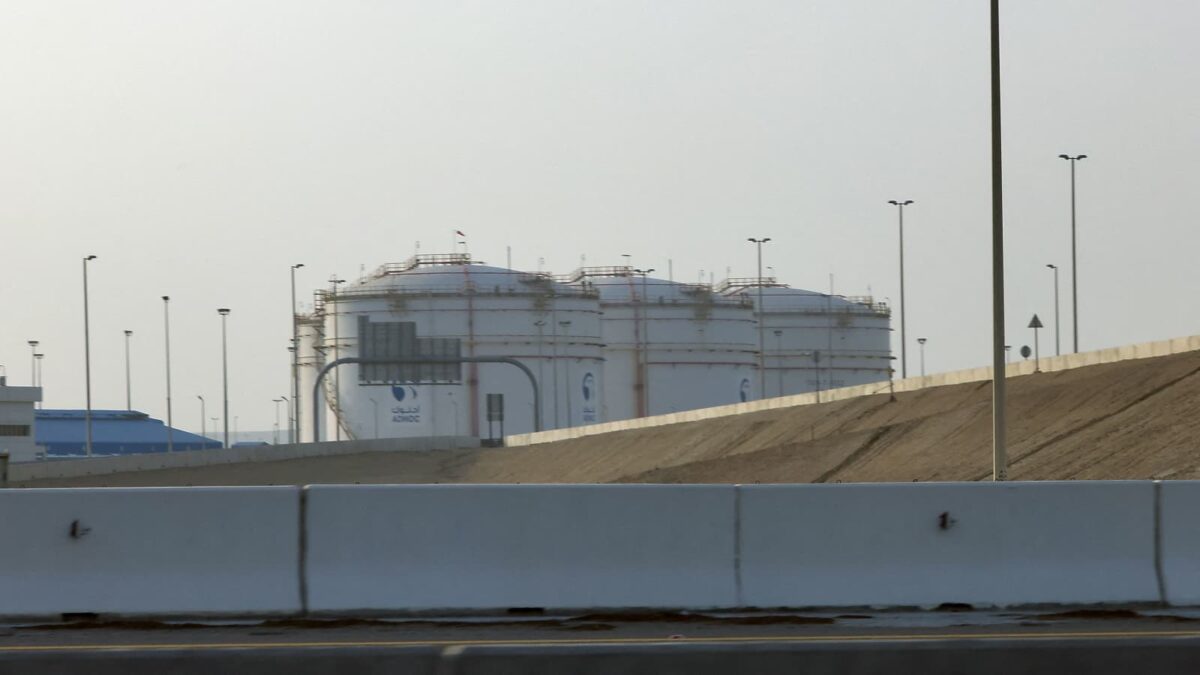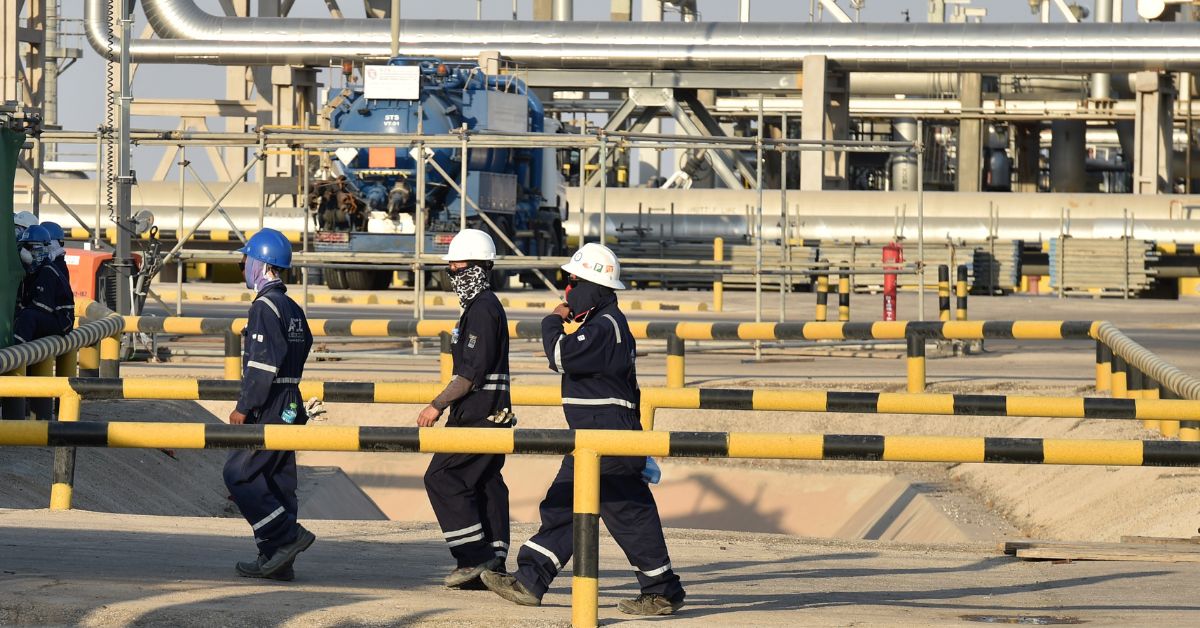RIYADH, SAUDI ARABIA — In the complex world of international relations, few commodities have played as pivotal a role as oil. The lifeblood of modern economies, oil’s price fluctuations reverberate through markets, influencing everything from the cost of a family vacation to the strategic calculations of governments.
In recent years, geopolitical tensions have been a major driver of oil prices, with the interplay of political dynamics and the oil market leaving an indelible mark on energy security and international relations.
The Russian-Ukrainian war since February 2022 serves as a stark example of how geopolitical events can send shockwaves through the oil market. The conflict has led to a sharp increase in oil prices as global markets feared disruptions to supplies from Russia, a major oil exporter. But the Ukraine crisis is just one piece of a larger puzzle. Other geopolitical tensions, such as the trade war between the United States and China and China’s response to COVID-19, have also weighed on oil demand and prices.

Wael Makarem, Financial Strategist Lead at Exness, emphasizes the importance of geopolitics in understanding oil prices. “Geopolitics is very important to monitor when trading oil or following oil prices because it has a lot of impact on either supply or demand, especially when we have significant tensions like the ones we had last year,” he told TRENDS.
“Although the war between Ukraine and Russia is still ongoing, if we look at the impact of what’s happening on oil prices, it’s declining a little,” he said.
Makarem said this year has been more of a consolidation year, with little volatility. Oil prices are rising as market participants strive to balance prices.
“Of course, geopolitical tensions remain important to watch when discussing oil prices.” When tensions rise, there is more uncertainty, which creates more uncertainty on the economic front. We haven’t seen much tension this year; it’s less than in 2022, but it’s still there because of the war. As a result, these factors aren’t timely. We could see some headlines at any time, and these headlines would undoubtedly have an immediate impact on the oil price. “We can anticipate that economic factors will have a greater impact on oil prices this year than geopolitical factors did last year,” he added.

One of the economic factors influencing prices is the lifting of Chinese restrictions and the reopening of the country at the beginning of this year, which was a critical economic factor to monitor.
Makarem mentioned that the entire global economy was betting on China’s reopening, but we’re not seeing the strong rebound that was expected, so it may take some time. People, the Bank of China, and even the government are attempting to support the economic recovery. Despite the rebound, keeping an eye on data coming out of China is critical.
The global manufacturing sector is also experiencing a slight slowdown. It has yet to recover, and we must rely on a rebound and the manufacturing sector for demand prospects or oil demand outlook to improve slightly. As a result, this is something that must be closely monitored.
Furthermore, interest rates play an important role. The probability of a recession is increasing as interest rates continue to rise. When there is a high probability of a recession, the demand for oil falls.
OPEC recently revised its forecast for 2023 and 2024. This is optimistic, and prices are recovering from recent pressures, and we’re in a better state than in the previous six weeks. Crude oil has returned to 76 levels per barrel. Brent is trading around $80, a significant increase from $65 to $70. So, we’re talking about more than a 10% increase. It’s good for the time being. “Let’s see how we can move it forward,” Makarem said.
In April 2023, OPEC+ agreed to extend oil production cuts that were first announced in 2020. This decision helped push oil prices by about $9 a barrel to above $87 per barrel over the following days. In June 2023, they agreed further to extend oil production cuts through the end of 2024. This decision is likely to keep oil prices elevated in the coming months.
So far, OPEC has successfully stabilized markets, according to Makarem.
“High prices, of course, are bad for markets, and low prices are bad for producers. As a result, they must find some middle ground, and we have been expecting oil prices to reach some sort of equilibrium since the beginning of the year. The equilibrium is currently occurring between nearly $65 and $85 per barrel for crude oil.
When markets are falling, we see this $20 range and some intervention from OPEC, either verbally or by making some decisions to boost the market a little. And as prices rise slightly towards 80-85, concerns about the impact of higher oil prices on the economy cause some market volatility.
As a result, this equilibrium has been successful for the past few months. Assume that, up until now, OPEC has done a good job of keeping prices in the $70 to $75 per barrel range”.
Makarem expects more uncertainty going forward, considering how OPEC Plus reacted.
“We had a few changes, some of which resulted from last-minute decisions, such as Saudi Arabia and Russia extending their cuts. So, whenever they see the outlook is dim, they’re trying to be proactive rather than reactive, which is a bit supportive for oil prices. As a result, we are now observing that when prices decline, someone is intervening, trying to stabilize the market. This helps to boost buyer confidence and supports more stable and optimistic prices”.
However, challenges persist, particularly from non-OPEC+ producers, on which OPEC+ doesn’t have any impact. This is one of the things we’ve been observing lately that it is evolving to be an essential factor to monitor and would put some pressure on OPEC+ members. “The global economic outlook is another unquestionably important factor,” says Makarem.
“If we see further headwinds in the economic outlook, this will impact oil prices. Also, let’s not forget about speculators. His Excellency, the Saudi Arabian Energy Minister (Abdulaziz bin Salman Al Saud), specifically mentioned several times the part these speculators play in the oil markets. This consequently makes it somewhat difficult for producers to attempt to stabilize the market. Prices have; however, until now, prices are speaking about themselves, and OPEC+ is managing to stabilize prices at a reasonable price,” he adds.

